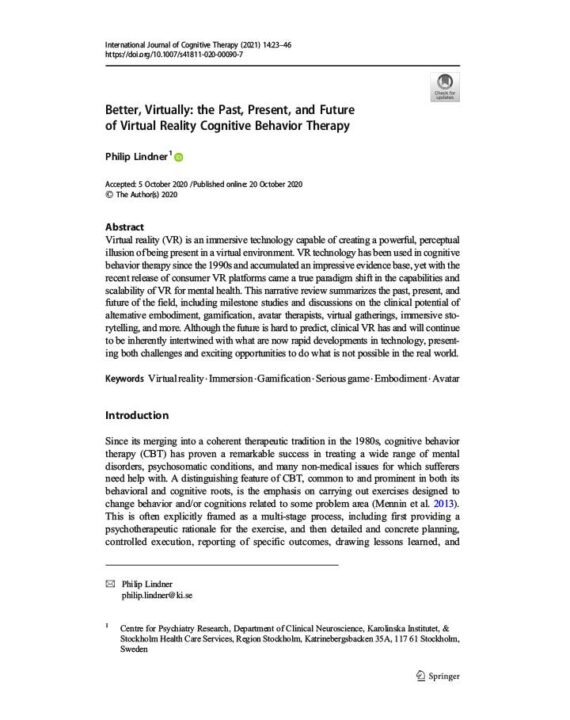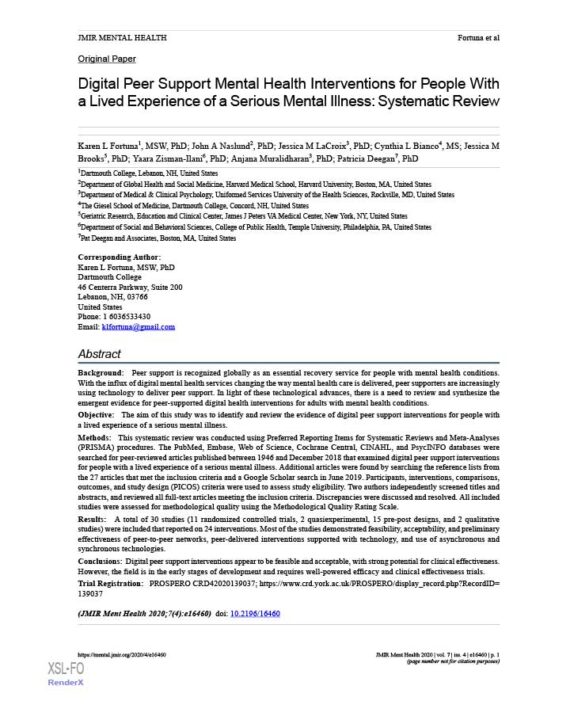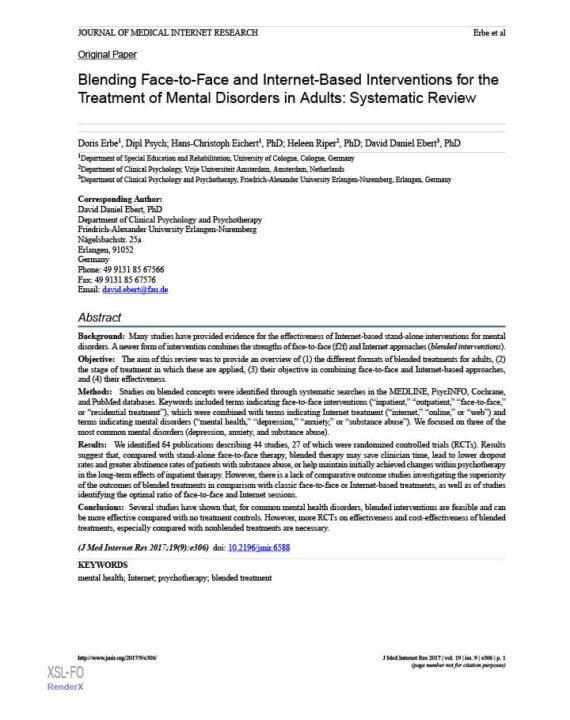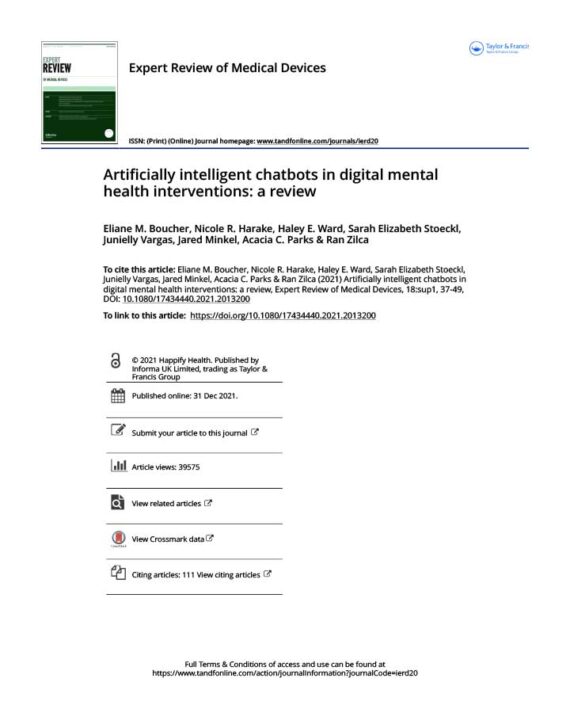This review considers the empirical literature to date on using videoconferencing to deliver psychological therapy to adults presenting with mental health problems. The results show that videoconferencing has an established evidence base in the delivery of cognitive behavioural therapies for post-traumatic stress disorder and depression, with prolonged exposure, cognitive processing therapy, and behavioural activation non-inferior to inperson delivery. Initial studies show applicability of cognitive behavioural therapies for other anxiety and eating disorders and obsessive–compulsive spectrum disorders, but there has yet to be study of use in severe and complex mental health problems.
information
Review of the current empirical literature on using videoconferencing to deliver individual psychotherapies to adults with mental health problems
Information
English
2024
pdf
Translations
No translations available






